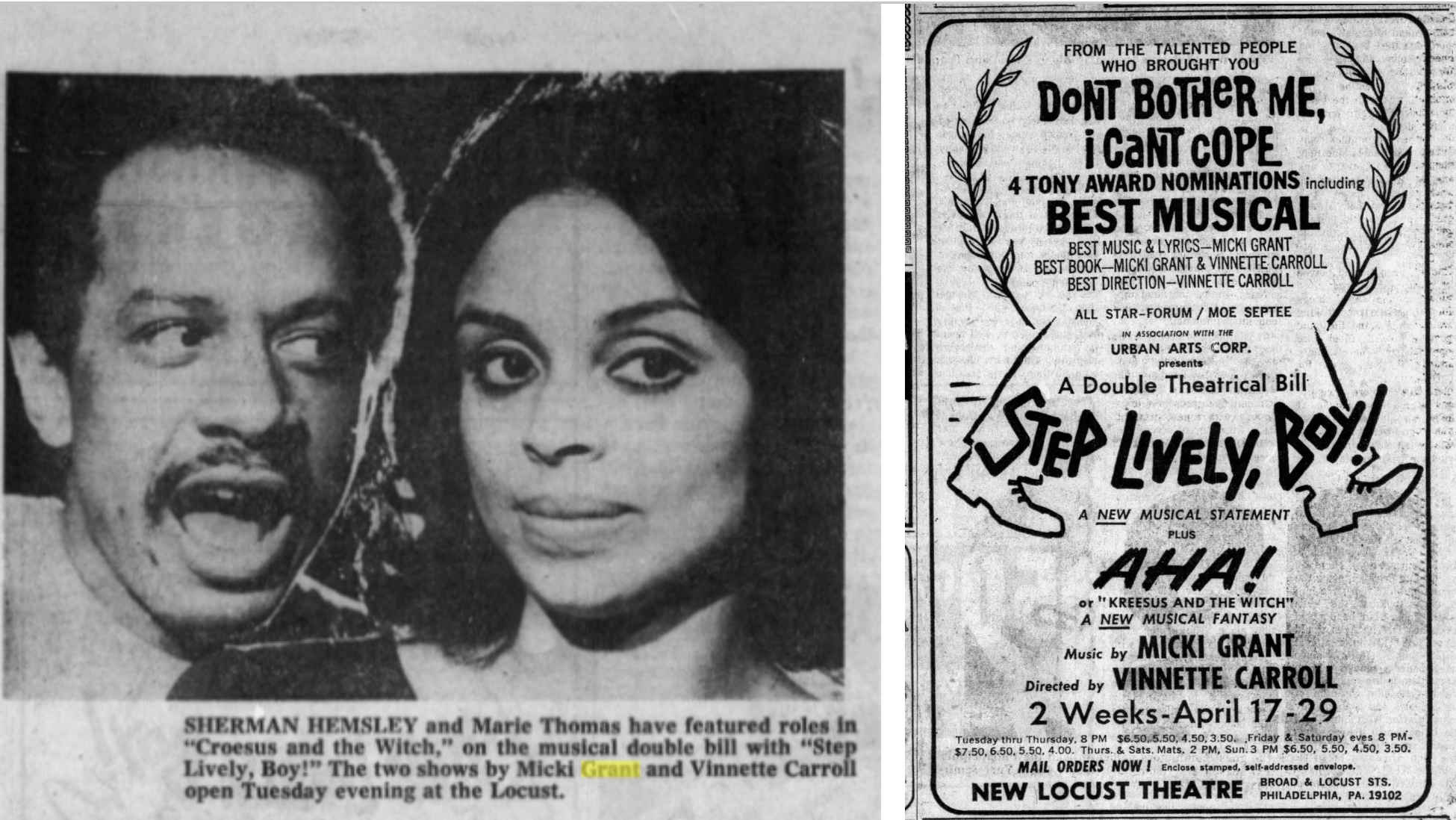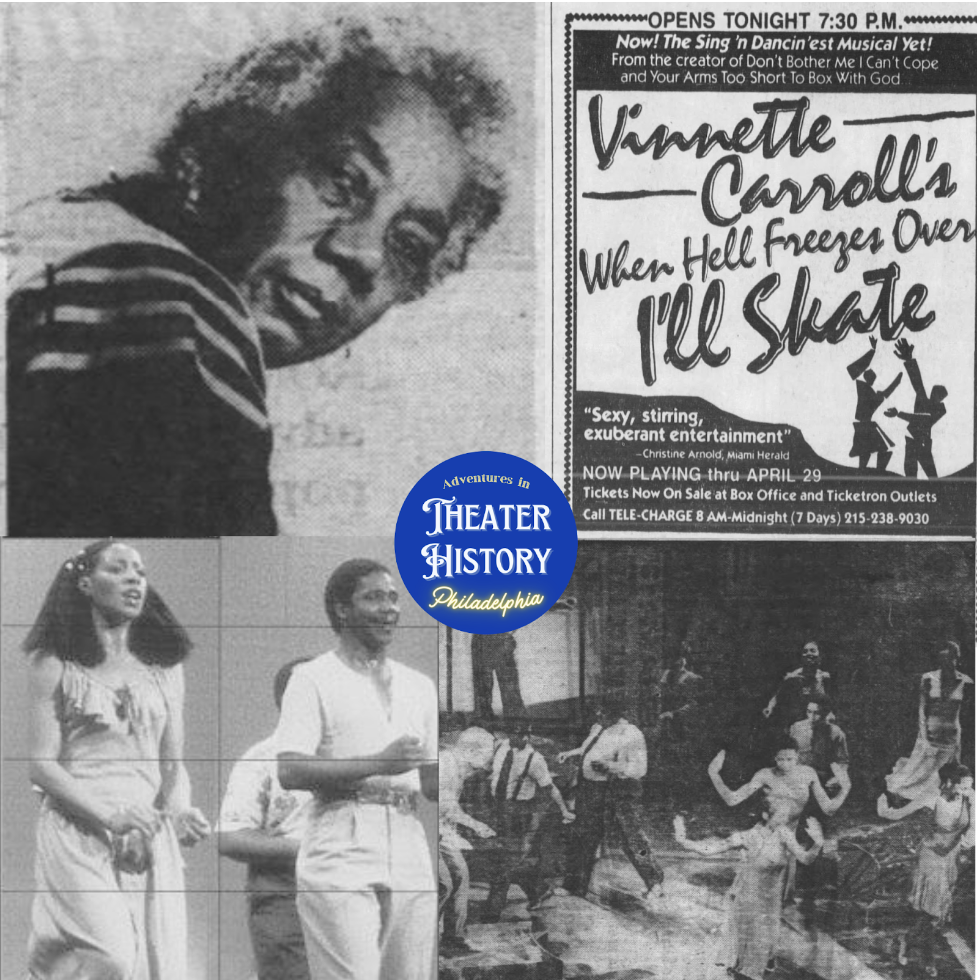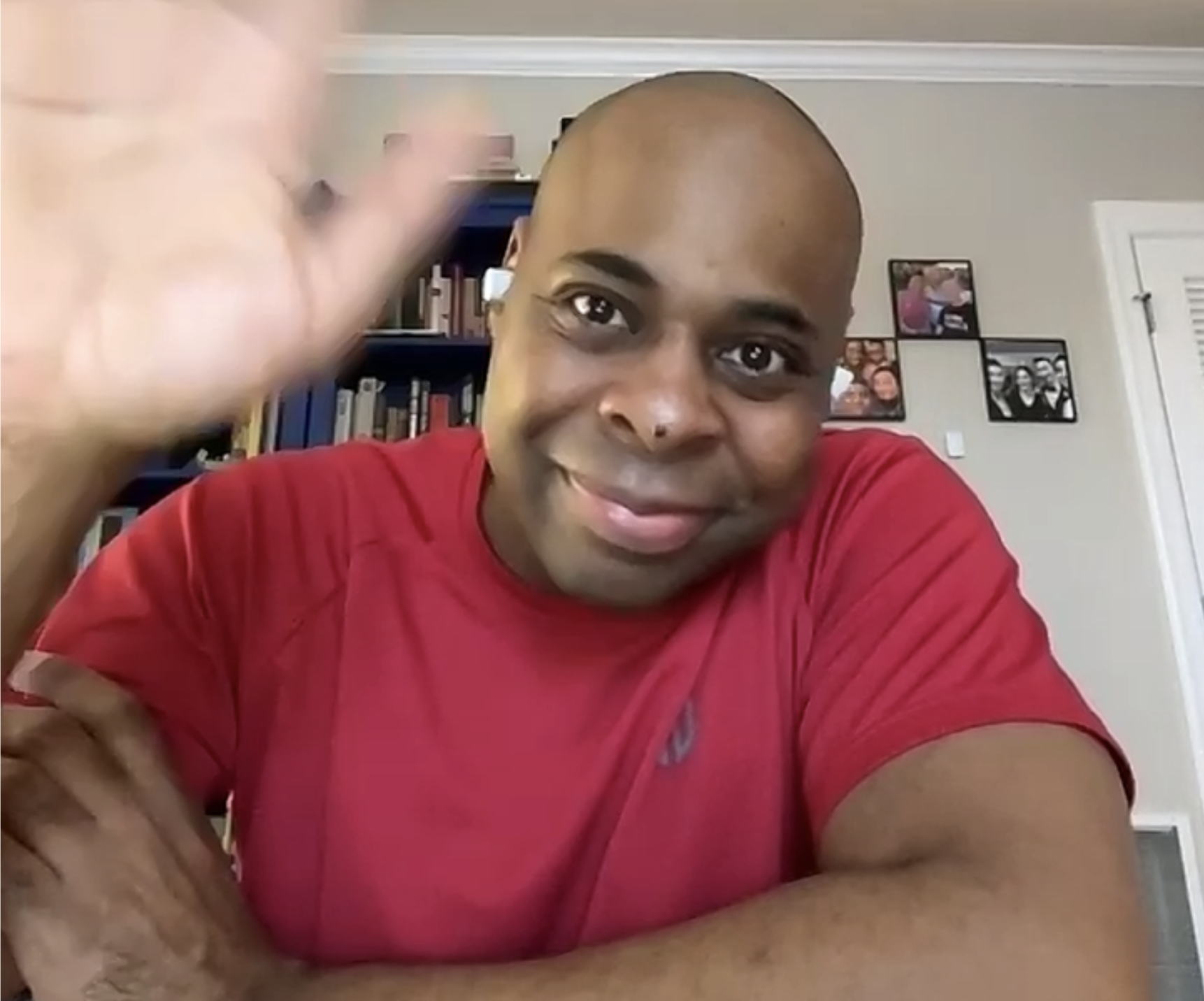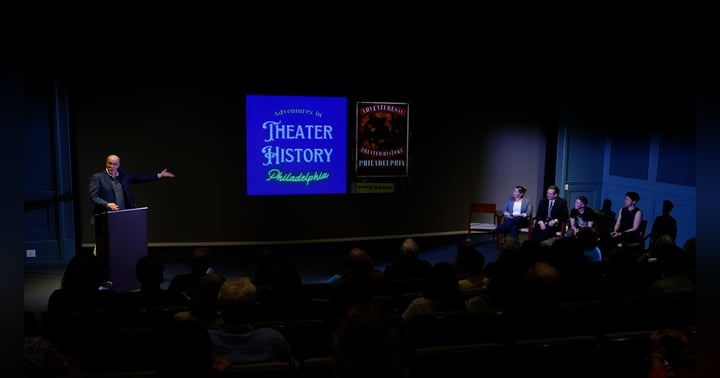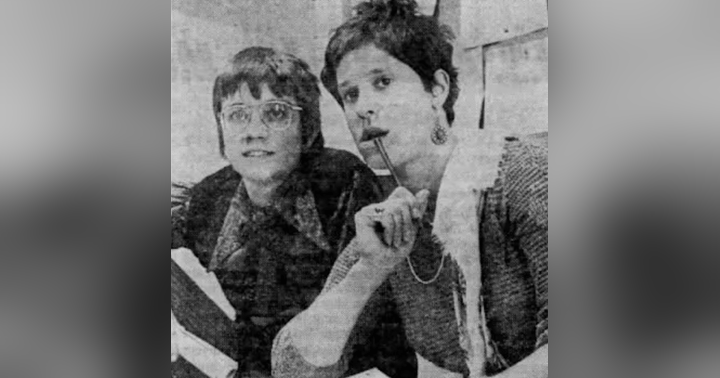
Vinnette Carroll, in a photo taken in 1972 during the Broadway run of Don't Bother Me, I Can't Cope. (Source: The New York Public Library Digital Collections)
Below, a photo of Carroll as a young actress, along with a program of her one-woman show from 1954. We can not that it was signed by Langston Hughes, so there is clear evidence that the poet was aware of her work long before the creation of Black Nativity. (And because of our particular fixation on Philadelphia theater history, we can note that she also performed a selection of the Gilbert Seldes translation of Aristophanes' Lysistratra that was first commissioned and performed in the Quaker City in 1930.)
In 1957, Carroll directed a production of the play Dark of the Moon at the Harlem YMCA. The play, a retelling of the "Barbara Allen and the Witch Boy" myth, we set in Smoky Mountains of Appalachia. But Carroll re-set the show to the bayou's of Louisiana, an utilized African American folk and gospel music. She re-staged this production at the Equity Library Theatre, where it was seen by Hughes and led to her work on the project that became Black Nativity.
In Calvin McClinton's 1996 PhD dissertation, there are reproductions of the program for the original 1957 production. We can note the names of several actors who would later become well-known, including Roscoe [Lee] Browne, Cicely Tyson, and Isabell Sanford. (The "Grace Kelly" playing the "Conjur Woman" was of course neither the Philadelphia actress who later became Princess Grace, nor the modern-day jazz composer of the same name.)
In 1959, Carroll made her first professional appearance in Philadelphia, in the cast of a tryout production of the play Jolly's Progress, which starred a young Eartha Kitt. But it wasn't until 1964 that her work as a director first was seen in Philadelphia, when a televised version of a work called Jubilation aired on the local station WCAU -TV, employing the talents of two Philadelphia gospel choirs. From a review article from the Inquirer, we can see that she also performed as the "cello-voiced" narrator:
As we mention in the podcast episode, in 1971 Carroll and Micki Grant brought the Urban Arts Project production of Don't Bother Me I Can't Cope to the Walnut Street Theatre. We can see that producer Mo Septee was also bringing other similar shows to both the Walnut and the Locust. The musical The Me Nobody Knows, which was also a popular ensemble piece about "ghetto" youth.
Above, a photo of the original Broadway company of the production.
The next year, Philadelphia-born-and-raised Sherman Hemsley was starring with Marie Thomas in the dual productions of Aha! and Step Lively, Boy! at the Locust.
Above is a photo of Carroll working with the company of Your Arms Too Short to Box with God. Again, it is from The New York Public Library Digital Collection. (We used a detail of a similar photo to represent our Episode 81 on podcasting platforms.) The show had a tryout production at the Locust in July of 1975.
Below is a still of Vinnette Carroll's appearance as a doctor on the hit sitcom All in the Family in the October 1976 episode "Archie's Operation." Playing a Jamaican doctor, she is giving Archie Bunker (Carroll O'Connor) an injection. The highlights of the episode are on YouTube: https://www.youtube.com/watch?v=Cfocap0Wyac
Below, a newspaper ad and rehearsal photos for the ill-fated tryout production of Alice at the Forrest Theatre in 1978, followed by the brutal review from William Collins' that helped to kill the production. (It's worth noting that Collins had written highly complimentary reviews of all of Carroll's earlier works.
Interestingly, thought we didn't mention it in the podcast, apparently the Freedom Theatre in Philadelphia tried to organize a campaign to get Black Philadelphians's to come to the Forrest Theatre and support Carroll's play, but it was not sufficient to keep the show open.
Below, more rehearsal photos and ads for the final Vinnette Carroll show that we discuss in the episode, the April 1984 production of When Hell Freezes Over, I'll Skate.
To end this post, a screenshot of Jerrell Henderson, waving to us all during the Zoom call conversation we used for the podcast. Our thanks again to Jerrell for all his wonderful passion, erudition and enthusiasm on this important topic!






